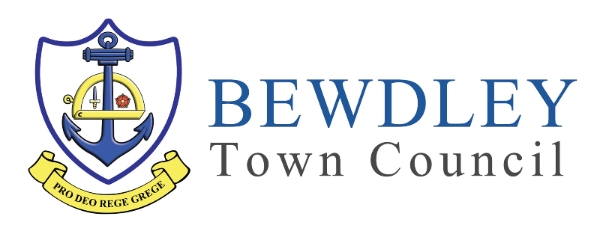About The Town Council

Bewdley Town Council was created in 1974, following the reorganisation of local government in England & Wales. It now forms part of the district of Wyre Forest which is one of six districts within Worcestershire.
ABOUT LOCAL COUNCILS
A local council is a universal term for community, neighbourhood, parish and town councils. They are the first tier of local government and are statutory bodies. They serve electorates and are independently elected and raise their own precept (a form of council tax). There are 10,000 local councils in England with over 30% of the country parished and 100,000 councillors who serve in these local councils, with over £1b being invested into these communities every year.
Local councils work towards improving community well-being and providing better services. Their activities fall into three main categories: representing the local community; delivering services to meet local needs; striving to improve quality of life and community well-being.
Bewdley Town Council has 13 Town Councillors, all of whom are elected for a term of four years. For voting purposes, Bewdley is divided into three Wards which are Bewdley West (4 Councillors), Bewdley East (4 Councillors), and Wribbenhall (5 Councillors).
The Town Council year begins officially with the Annual Meeting of the Town Council. This is also known as “Mayor-Making”, when the Town Councillors elect a Mayor, a Deputy Mayor, the Town Council’s Committees and Advisory Groups, as well as representatives to outside bodies.
Some local services are provided by Wyre Forest District Council and Worcestershire County Council. Bewdley Town Council work very closely with these organisations to ensure that the town is represented, with District and County Councillors also attending Town Council meetings.
General Power of Competence
Local Councils in England were given a General Power of Competence in the Localism Act 2011, Sections 1-8. This means that Councils, once adopting the power, no longer need to ask whether it has a specific power to act. The Localism Act 2011 s1 (1) gives local authorities including town councils “the power to do anything that individuals generally may do as long as they do not break any other laws”. It is a power of first resort.
Restrictions in law which apply to the use of the General Power of Competence include the duties on councils:
- to act to prevent crime and disorder
- to respect human rights
- to consider biodiversity
- to protect personal data
Sometimes a council can do things that an individual can’t do such as creating byelaws, raising a precept or issuing fixed penalty notices but it must do so using the specific original legislation. The General Power of Competence does not mean the Council can delegate decisions to individual councillors. This procedural matter remains enshrined in law.
Bewdley Town Council adopted the General Power of Competence at its meeting on 6th July 2020. This power remains with the Town Council until the Annual Meeting following the next ordinary election (i.e. May 2023); it can then be readopted at that Annual Meeting if the Council is still eligible.
In order to be eligible for the General Power of Competence there are two criteria that must be fulfilled:
- At the time when the General Power of Competence is adopted, at least two-thirds of the total seats on the council must be held by members who stood at the last ordinary election or subsequent by-election, i.e. council members who have been elected (even if unopposed) rather than co-opted or appointed.
- The Clerk must hold the Certificate in Local Council Administration or an equivalent qualification.


